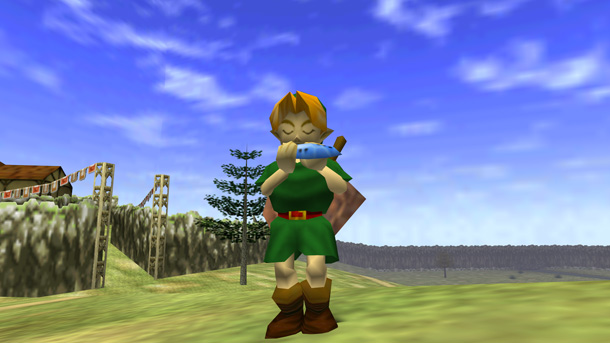Given that we’re all individuals, we all have different tastes. This holds true for most things in life, including one’s choice of video games. Some prefer first-person shooters, other role-playing games; the examples could go on forever. While this may seem like a no-brainer of an observation, the recipe for a great video game is more universal than you may think.
Think back to the last video game review that you read. What are a few things that the critic commented on? There’s a decent chance that they noted the quality of the graphics and the overall look of the game. It’s no secret that with this generation of consoles being at their apex and PCs constantly improving that video games look better now than ever before, and this trend is likely to never reverse itself. However, there are plenty of games with top-tier graphics that underwhelm. Likewise, there are countless lower budget productions, even Flash games, which players hold dear in their hearts.

If solid graphics aren’t the answer to the riddle, maybe an outstanding plot is the key to making a video game great. Chances are that you vividly remember a handful of games specifically because the narrative blew you away. You probably remember where you were, what the room you were in looked like, and the gamut of emotions that ran through you as you watched a brilliant story unfold. It’s tempting to conclude that an engaging plot is the most decisive factor in labeling a game “great”, but then how would one account for titles such as (a personal favorite) Trials HD? Trials HD has no plot to speak of, middle-of-the-road graphics, yet is still one of the best selling titles ever on the Xbox LIVE Arcade.
The factor that makes a video game great is more nebulous than what can be seen on the surface. That factor is immersion. Immersion is the key component to determining which titles impart a fleeting sense of satisfaction, and which titles stick around in the minds of players for ages.
Someone wiser than myself once said “the truly special video games are the ones that you play every chance you get, and when you’re away, all you can think about is getting back and playing them.” Consider that for a second. Which titles have been able to dominate your mindset for days at a time? Which titles have made you look at the clock and realize that you meant to go to bed three hours ago? Which titles have had you saying “just one more” even though you knew full well that there would be “just one more” after that, too? The list probably isn’t long, but everyone has at least a handful.

That isn’t to say that all of the obvious competencies hold no weight. In fact, the opposite is true. If a game has faulty control mechanics, it’s going to break the sense of immersion. The same can be said for shoddy graphics, a muddled story, or any aspect of a game. Every misstep chips away at the immersion that the player feels.
The reality is that immersion is an amalgamation of every feature of a video game – a sum of its positives and a subtraction of its shortcomings. However, video games are an art form and not everyone will ever hold all of the same qualities at the same level of importance. If that were true, we’d have a qualitative list of the best games ever, and there would be no deviation from it; it would just be accepted as the truth. This will obviously never happen as we all have different expectations of what we want from a game. But, ultimately, we all want the same thing: We want to be able to lose ourselves.

No Comments